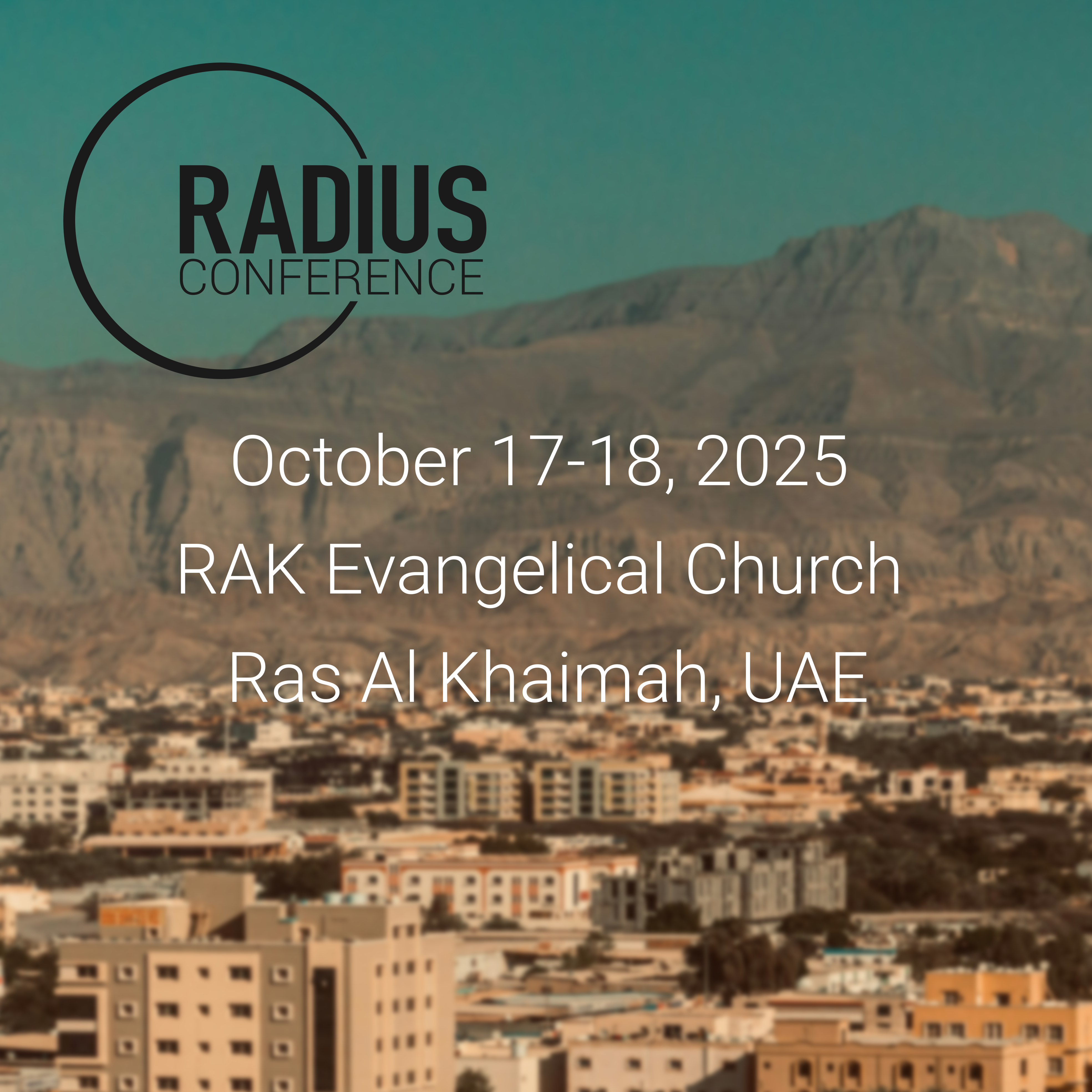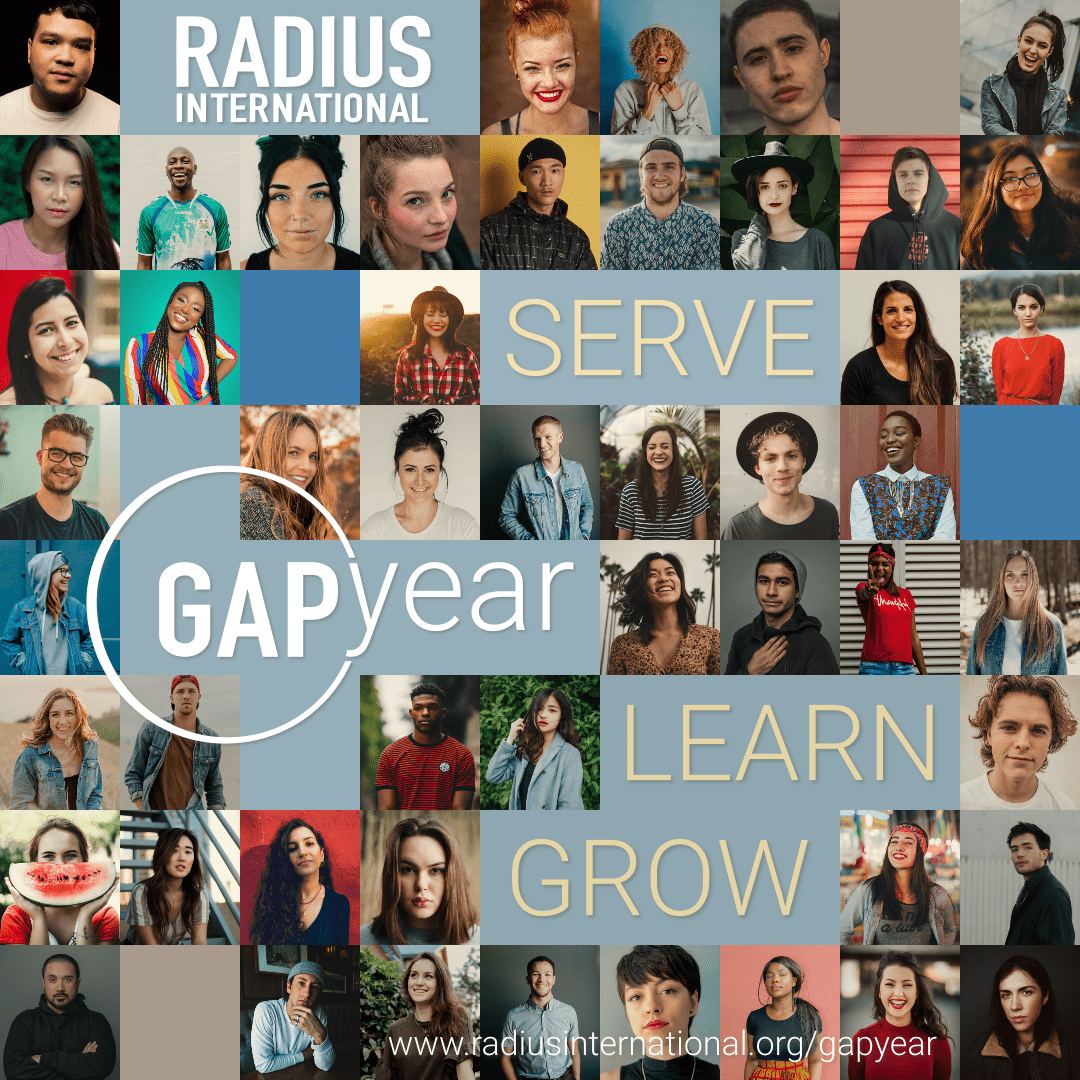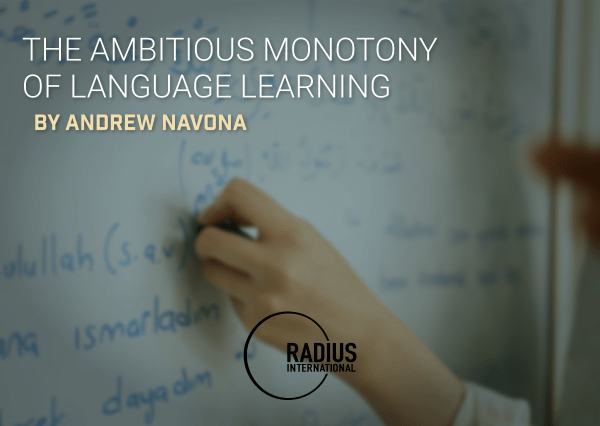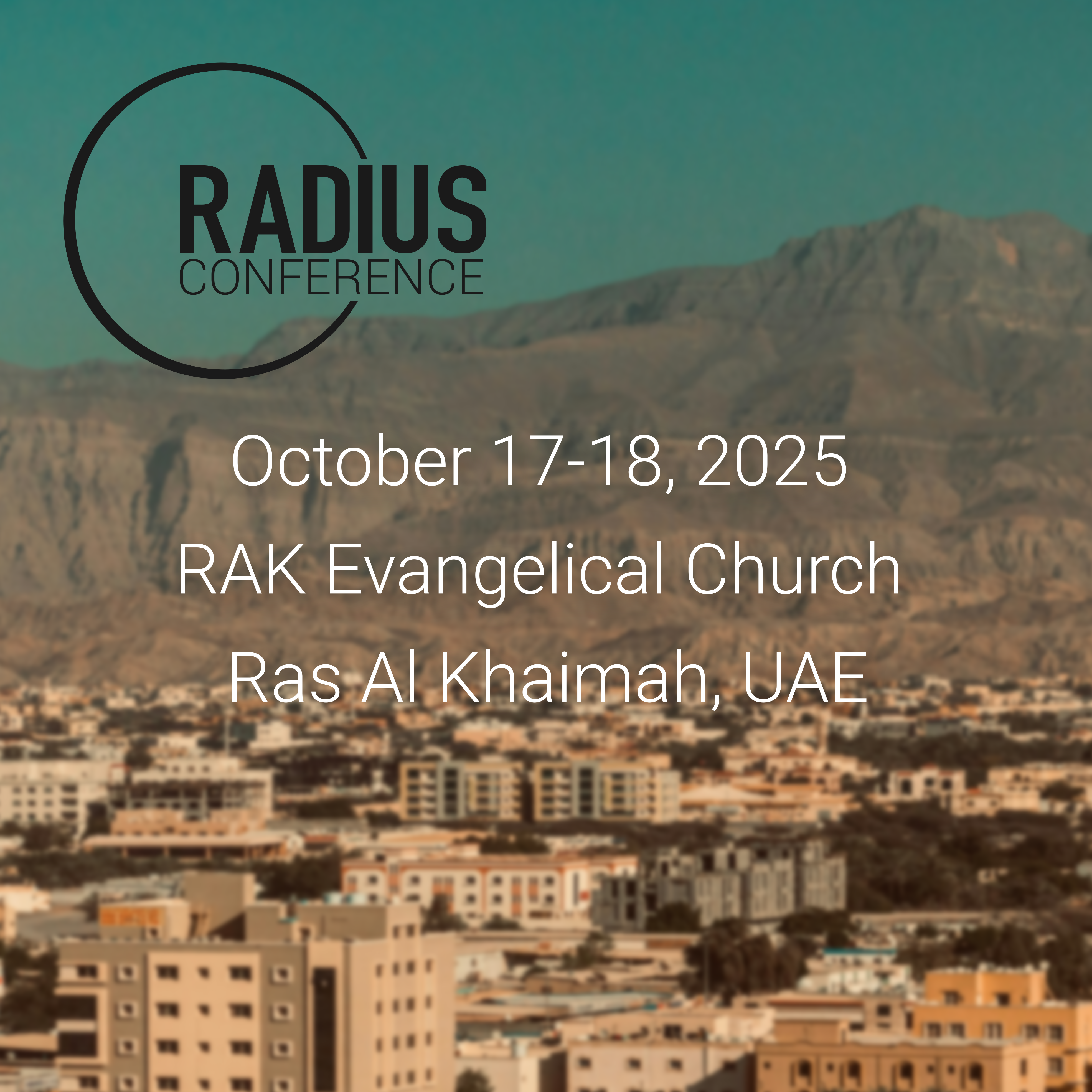“That seems a bit ambitious and unrealistic.”
When we landed in Southeast Asia two years ago, I set a personal goal to finish with our first language in two years. Our [local] language is one of the most difficult for a native English speaker to learn, and normally takes 3-5 years to attain fluency. So, when I would tell people that our team expected to learn the language in 2-3 years, we were met with statements like the one above. And to be honest, they were right. But if our goal is to learn not just one, but two languages, we needed to set ambitious goals for our first term.
“Confidence is knowing you can do something because you’ve done it before.” My college baseball coach would often repeat this to our team in order to remind us why we used the training methods we did. We would rehearse high-pressure scenarios in practice week in and week out so that during the season we would know how to respond in the midst of adversity. Although we were a small school, we would often come from behind and beat ranked opponents because we trained to overcome adversity and perform in high-pressure situations. Our confidence never wavered because we had done it before.
In June, less than 24 months after landing in Southeast Asia, I achieved the highest score possible for a non-native speaker in my final language evaluation. I have friends who have reached similar marks even quicker than I did, and many more that will soon achieve fluency in 2-3 years less time than the average language student in our country. What do we all have in common? We were all trained in how to learn a language, had done it before (in Spanish or Haitian Creole), and therefore knew exactly what we were doing when we stepped off the plane in our new home.
I always tell people that language learning is like banging your head into a wall over and over. Eventually, the wall will break, but there will be headaches along the way. Over the past couple years, when my teammates and I were in the throes of language learning and frustrated with lack of progress, we would simply remind ourselves that we’ve done this before. We could draw on our experience when we were in Mexico and remind ourselves of the light at the end of the deep, dark tunnel that is language learning. We had confidence that we could make it as long as we put our heads down and kept pushing because this wasn’t the first time we had done it. We knew that certain levels of our curriculum would be more difficult than others, but a breakthrough was coming in just a few days or weeks. If we hadn’t attended Radius and had the language learning experience we did, our lows would feel much lower and it would be very difficult to maintain hope. And now, as we look forward to the next language – our target people group’s heart language – we have even more experience to draw on.
So far, I’ve only spoken in human, earthly terms. Of course, coupled with our training, we must also lean on the Lord for sustenance and grace to complete our tasks and grant success. “The horse is made ready for the day of battle, but the victory belongs to the Lord.” (Prov. 21:31) It will be the Lord who ultimately builds his church. (Matt. 16:18) However, his servants need to be adequately prepared for the task. It is the lumberjack who chops down the tree, but his ax needs to be sharp. The level of preparation and training a person devotes to a given task is directly related to how difficult or important they believe that task to be. An athlete who spends little time training at his sport either doesn’t think the sport is very difficult, doesn’t place much importance on his performance, or underestimates the requirements of the sport altogether. There is often a similar approach to language learning overseas. It is not uncommon for missionaries to go overseas and “wing it” when it comes to language learning, only to be discouraged by their lack of results and eventually quit. These missionaries then settle into work that they can accomplish in English, ultimately limiting their long-term effectiveness. They will forever be dependent on translators or broken language to communicate. I’m not saying that their work is fruitless, as I’ve seen the Lord do amazing things through missionaries like these many times over. However, every missionary I’ve spoken to who has found themselves in this situation wishes they could communicate fluently in their host language. They either underestimated the task, didn’t know where to start, or didn’t devote enough time to it.
While presenting our plans for ministry to potential supporters, it was easy to feel daunted by the immensity of the task. Do we really expect to learn two languages, start and maintain a business, translate the Scriptures, develop an orthography (if needed), teach literacy, share the biblical narrative, and raise up church leaders? This doesn’t seem humanly possible, which is the point. It is the Lord who will build his church. He must provide the grace to sustain us, open the doors that need opening, and raise dead men to life. He, indeed, will build his church just as he promised. But he will build it by means of competent communicators of the gospel. And competent communication is only achieved by long hours of tedious work.
In preparation for a presentation, I found this quote from the legendary CT Studd, a former cricketer turned missionary, quite insightful:
“The ‘romance’ of a missionary is often made up of monotony and drudgery; there often is no glamor in it; it doesn’t stir a man’s spirit or blood. So don’t come out to be a missionary as an experiment; it is useless and dangerous. Only come if you feel you would rather die than not come. Don’t come if you want to make a great name or want to live long. Come if you feel there is no greater honor, after living for Christ, than to die for Him.”
Although he was speaking of the missionary task in general, I think this statement summarizes the work of language learning perfectly. Monotony and drudgery. My wife and I often reflect on how valuable our training was to our work because we became well acquainted with monotony and drudgery. We were also equipped with the tools to overcome them. We are convinced that one day monotony and drudgery will give way to the joy and privilege of sharing Christ with a people who have never heard the gospel in their language. This is the greatest privilege we trained for and now give our lives to.

Name withheld for security purposes
Alumni of Radius International
This blog post was written by one of our alumni, based on what they have been learning while at Radius.
 We train individuals, couples, and families who are committed to long-term, pioneer church planting among unreached language groups. RADIUS students acquire spiritual, relational, emotional, and moral maturity as well as the physical stamina that will enable them to survive the rigors of cross-cultural work and life.
We train individuals, couples, and families who are committed to long-term, pioneer church planting among unreached language groups. RADIUS students acquire spiritual, relational, emotional, and moral maturity as well as the physical stamina that will enable them to survive the rigors of cross-cultural work and life.
 Do you desire to take the Gospel to those who have never heard and see a healthy church established? Apply today for our immersive training program.
Do you desire to take the Gospel to those who have never heard and see a healthy church established? Apply today for our immersive training program. Are you interested in learning first-hand about RADIUS training and whether or not it is a good fit for you or your people? Join us for RADIUS Days to see campus, sit in on classes, and interact with current students, interns, and staff.
Are you interested in learning first-hand about RADIUS training and whether or not it is a good fit for you or your people? Join us for RADIUS Days to see campus, sit in on classes, and interact with current students, interns, and staff. Come to one of our campuses in Mexico for a week-long, intensive program to serve via various campus work projects, learn more about The Great Commission, and get a taste of what our students experience during their year with us.
Come to one of our campuses in Mexico for a week-long, intensive program to serve via various campus work projects, learn more about The Great Commission, and get a taste of what our students experience during their year with us. Our friends at Missionary are hosting a conference for young adults and their leaders on June 13-14th, 2025 at NorthCreek Church in Bay Area, CA.
Our friends at Missionary are hosting a conference for young adults and their leaders on June 13-14th, 2025 at NorthCreek Church in Bay Area, CA. Join us for The Radius Conference on October 17-18th, 2025 at RAK Evangelical Church in Ras AL Khaimah, UAE.
Join us for The Radius Conference on October 17-18th, 2025 at RAK Evangelical Church in Ras AL Khaimah, UAE. Spend 9 months in Mexico and play a vital role in The Great Commission through serving our staff and students while gaining valuable cross-cultural experience and opportunities to grow in your faith.
Spend 9 months in Mexico and play a vital role in The Great Commission through serving our staff and students while gaining valuable cross-cultural experience and opportunities to grow in your faith. Would you like to join us in our efforts to further the spread of the Gospel in still-unreached places? Support the work of RADIUS International by donating online.
Would you like to join us in our efforts to further the spread of the Gospel in still-unreached places? Support the work of RADIUS International by donating online. Are you or your church interested in giving towards a special missions opportunity? Learn more about some of our current projects.
Are you or your church interested in giving towards a special missions opportunity? Learn more about some of our current projects. Partner with some of our current students by paying their tuition/room & board.
Partner with some of our current students by paying their tuition/room & board. Reimburse RADIUS for on-campus lodging and/or meals.
Reimburse RADIUS for on-campus lodging and/or meals. Check out our blog for recent posts from our staff, alumni, and ministry partners.
Check out our blog for recent posts from our staff, alumni, and ministry partners. Purchase recommended books from our online bookstore at 10ofthose.com.
Purchase recommended books from our online bookstore at 10ofthose.com.
 Do you desire to take the Gospel to those who have never heard and see a healthy church established? Do you think RADIUS might be a good fit for you? Apply today!
Do you desire to take the Gospel to those who have never heard and see a healthy church established? Do you think RADIUS might be a good fit for you? Apply today!
 Interested in working with RADIUS? Learn more about open positions.
Interested in working with RADIUS? Learn more about open positions.



